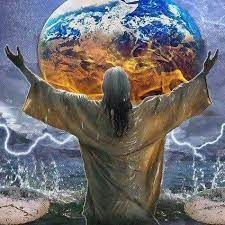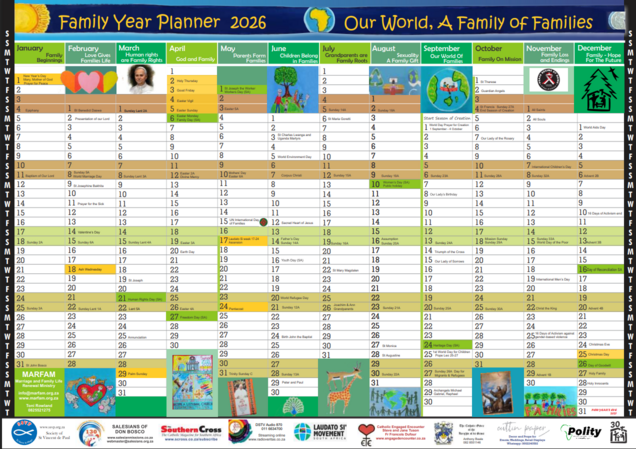March 31. A new heaven and a new earth. Thus says the Lord. “Behold I create new heavens and a new earth. Mrs Beatus spoke to the group: The 2020-2021 COVID-19 pandemic is nearly 5 years behind us. It was a difficult time that still has after-effects today. It is not the only pandemic history has seen, but it was the most wide-spread, because of the nature of our global village. Economically the global village has suffered too, and creation in all its forms has suffered and survived many catastrophes. Human beings are responsible for causing many disasters such as conflicts and wars on every level. We are the only creatures with the capacity to be able to address many disasters, even if only after the event. Judgement and punishment for wrongdoing is necessary, but seemingly seldom happens as it should. In spite of all hope remains. God never abandons his people”.
From The Care of Creation – a Franciscan spirituality of the earth. Ilia Delio et al. “God created, was present and continues to be present in his love, throughout the life of Jesus, his resurrection and the final transformation of all creation, as foretold in the gospels and the book of Revelation. Relationship is the key to the beauty of the universe. Since all reality is good, then my relationship with others, human and non-human ought to promote goodness.”
Reflect, share and act. Scripture: Thus says the Lord. “Behold I create new heavens and a new earth. Be glad and rejoice forever in that which I create, for behold I create Jerusalem a rejoicing and her people a joy. No more shall be heard in it the sound of weeping or the cry of distress.” Isaiah 65: 17-21. Pope Francis: If we accept the great principle that there are rights born of our inalienable human dignity, we can rise to the challenge of envisaging a new humanity. We can aspire to a world that provides land, house and work for all. This is the true path of peace which will only be possible in the event of solidarity as the whole human family. FT 127. JUBILEE. Hope is “that theological virtue by which we desire… eternal life as our happiness”. The Second Vatican Council says that, “when people are deprived of this divine support, and lack hope in eternal life, their dignity is deeply impaired, as may so often be seen today. The problems of life and death, of guilt and suffering, remain unsolved, so that people are frequently thrown into despair”. We, however, by virtue of the hope in which we were saved, can view the passage of time with the certainty that the history of humanity and our own individual history are not doomed to a dead end or a dark abyss, but directed to an encounter with the Lord of glory. As a result, we live our lives in expectation of his return and in the hope of living forever in him. In this spirit, we make our own the heartfelt prayer of the first Christians with which sacred Scripture ends: “Come, Lord Jesus!” ( Rev 22:20). SNC 19. Choose an act of love and sacrifice from the list, also published at www.marfam.org.za







Recent Comments